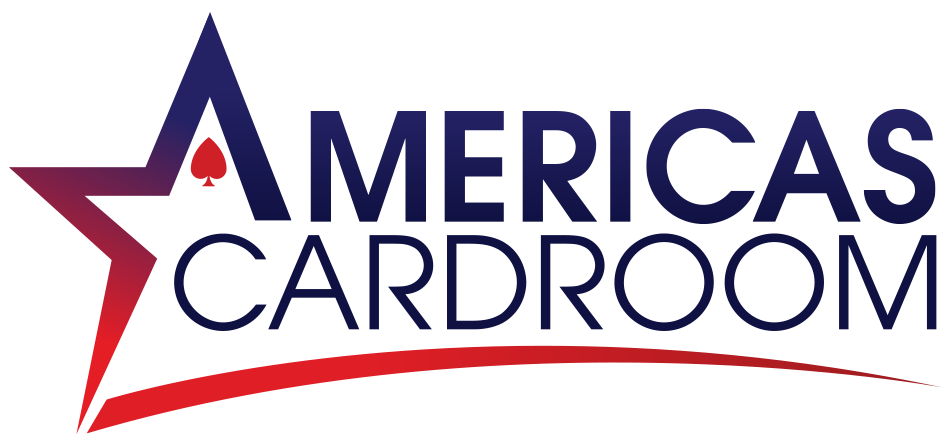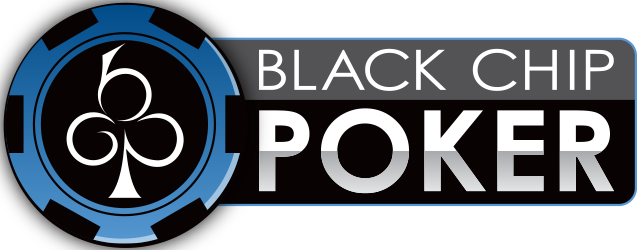How to Play Omaha
Recommended Poker Sites April 2025
| 1. |  |
Ignition |  |
 |
n/a | Ignition |  |
|
| 2. |  |
Bovada |  |
 |
n/a | Bovada |  |
|
| 3. |  |
BetOnline |  |
 |
n/a | BetOnline |  |
|
| 4. |  |
Intertops |  |
 |
n/a | Intertops |  |
|
| 5. |  |
Sportsbetting |  |
 |
n/a | Sportsbetting |  |
|
| 6. |  |
America’s Cardroom |  |
 |
n/a | America’s Cardroom |  |
|
| 7. |  |
Blackchip Poker |  |
 |
n/a | Blackchip Poker |  |
Must be at least 18 to open a new account
To start a new hand, a person is flagged as being “the dealer” (determined randomly online). The player immediately to the left of the dealer puts up a forced bet amount, called the “small blind” and the player to the left of the small blind posts the “big blind”. The small blind is always half the value of the big blind, and blind amounts are predetermined. The minimum bet you can make is always based on the value of the big blind. The rest of the players do not put up any money in the pot yet. Every time a new hand begins, the dealer button moves up to the next person at the table, which also means that the blinds move from player to player. Each player will eventually act as the big blind, small blind and dealer.
The Opening in Omaha
Each player is dealt four cards face down, starting with the player in the small blind position. Obviously, you get to see your own cards at this point. The first betting round now begins.
Betting Rounds in Omaha
The player to the left of the big blind will be the first to act. He can call the bet by putting in the amount of the current bet, which is currently the value of the big blind. He can also raise by putting at least twice the amount of the current bet. The last option is to fold and withdraw from the hand.
The betting goes around the table in clockwise order, from player to player, until it reaches the player who posted the big blind, who did not yet act. If no one raised, the player can “check, which essentially means calling the current bet which he had already covered by posting his Big Blind amount. The player also has the option to raise. If a raise had already occurred, the player in the big blind could not “check” and would have to either call, raise or fold. The betting round continues around the table until the current bet is called by all remaining players in the hand, or until everyone but the raiser folds. In this case, this person would win the pot and wouldn’t even have to show their cards. The hand would be over and a new one would start. Assuming the bet was called, we proceed to the next step.
The Flop, turn and river
After the first betting round is completed, three cards are dealt and turned face up in the middle of the table. This is known as the “Flop.” These are community cards used by all the players. Another betting round begins with the first active player to the left of the dealer button. Since there are no bets currently, every player will have the option to “check” (which is the equivalent of betting $0 in this case), until an active player decides to bet an amount.
When the betting round after the flop is completed, the dealer turns a fourth card face up in the middle of the table. This is called the “Turn.” The third betting round now begins, and works just like the last betting round.
At this point, the dealer will turn a fifth and final card face up. This is called the “river,” and the final betting round can now begin.
The Showdown
Players have access to seven cards: Their two hole cards plus the 5 community cards on the board. To determine the winner, the players may use any combination of those seven cards to form the highest five-card hand. It is possible that your best hand is made up of the 5 board cards. There can occasionally be ties, in which case the pot is divided up amongst those who were tied. Otherwise, all of the chips in the pot go to the winner of the hand.
Omaha Betting Rules
As indicated above, there are a total of four betting rounds. Betting takes place after the hole cards are dealt, after the flop, after the turn, and after the river. Below of the specific betting rules applicable the type of Holdem limit you are playing:
Betting Rules for No Limit Omaha
The minimum bet amount is the value of the current bet. When there are not bets in play, the bet amount is the value of the big blind. For example, in a 5/10 table, where the small blind is $5 and the big blind is $10, you must raise to at least $20, assuming there were no other bets. There is no maximum raise amount, and you can bet your entire stack of chips, which is called going “all in”. Here is an example: Blinds are 10/20. Player 1 calls $20. Player 2 raises to $60. If someone else wants to raise, they must raise to at least $120 as the current bet is now $60. Calling means you put in a total of $60 so the big blind that already has $20 invested would need to add an additional $40 to call and stay in the hand. Folding means that he would lose the $20 already invested. Finally, anyone can go all in at anytime, even if they can’t cover the current bet. For instance, if the current bet is $400 and I only have $300 left, I can still call and be “all in”, but I can’t win more than $300 per player involved in the hand. For more information on how to deal with this situation, see this article on side pots in poker.
Betting Rules for Limit Omaha
In Limit Omaha a maximum of four bets is allowed per betting round. This includes an initial bet, a raise, a re-raise, and a cap (final raise). In limit Omaha, betting amounts are fixed, and are based on the big blind. So in a 10-20 limit game, the value of the big blind is actually $10 and not $20. So the small blind is $5, the big blind is $10. Out of the four Holdem betting rounds, the first two are based on the $10 increment, while the last two are based on the $20 increment. It may sound complicated, but it’s really not.
Here’s an example: In a $10/$20 limit game, blinds are 5 and 10. On the first betting round, the first person to act can call the $10, raise to $20, or fold. There are no other options. Typically, there can only be an initial bet and maximum of 3 raises in total, but that could vary in certain poker rooms. Once the maximum number of raises is attained, each remaining player must call or fold, but can no longer raise. The exact same thing happens on the second betting round. On the third and fourth betting rounds, everything works the same way with the exception that the bet amounts double, so calling begins at $20 and the initial raise is to $40. Additional raises are done in $20 increments.
Betting Rules for Pot Limit Omaha
This works exactly as no limit Omaha, except that the maximum bet is caped. The cap is based on the total value of the pot, after you would call the bet. So for example in a $10/$20 pot limit Omaha game, after the blinds are posted, the first player can fold, call the $20, or raise to $50 which represents the total pot value had they called the bet. (small blind + big blind + call = 10+20+20). The next player can now fold, call $50, or raise up to $130 (small blind + big blind + the raise + call = 10+20+50+50). Now the next player can do the same and raise up to $340! (small blind + big blind + the raise + reraise +call = 10+20+50+130+130). You can go “all in” when your total chip count does not exceed the maximum raise allowed. So in the last example where $340 was the maximum raise, someone with $300 could go “all in”. Remember that you don’t necessarily have to raise up to the maximum amount if you don’t want to, but you must raise by as much as the current bet at least. While these amounts may be tricky to track, the software in poker rooms will let you know what the maximum betting amount is so you don’t have to worry about all the calculations.
Omaha Hi Lo
In Omaha hi-lo (or High Low) the pot can be split between the player with the best hand and the player with the worse hand. In order for this “split” to happen, the low hand must be legal(eight-high or lower to qualify). To qualify for low hand, a player must be able to play an 8-7-6-5-4 or lower. This is the game is sometimes called “Omaha eight-or-better”, or simply “Omaha/8”. A Straight isn’t counted as in low hands. Theoretically, a player could have both the best high hand and low hand with a straight. For example, 4-5-6-7-8 counts as a low hand (no pairs, no card higher than 8) and counts as a high hand as a straight. If none of the high hands beat this straight, and none of the low hands are worse, then this player would earn the full pot. When there are no legal low hands, then the full pot goes to the player with the highest hand.




